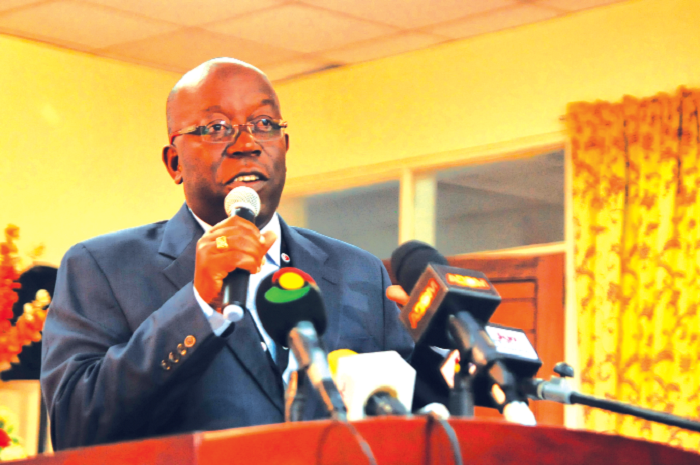The funds will help Ghana – which recently requested an eight-month extension to a $918m credit facility with the IMF, following a higher-than-expected 2016 budget deficit – sustain spending on key capital projects in the industrial and transport sectors.
Government signs billion-dollar deals during official visit
Some $15bn of the total amount was secured during an official visit to China in late June by Mahamudu Bawumia, Ghana’s vice-president, during which the government signed several memoranda of understanding (MoUs) worth billions of dollars.
That portion of financing was agreed under a commodity-swap arrangement whereby Ghana will give a portion of its bauxite reserves – 5% or less, according to Bawumia – in exchange for $15bn in funding from China. Ghana’s bauxite resources total some 960m tonnes and are worth $460bn.
This total was raised by another $4bn on July 13, when the government signed a deal with state-owned Sinohydro Corporation to develop energy and infrastructure projects, including a multipurpose hydroelectricity project at Pwalugu and several solar power plants.
Investment channelled towards industry and supporting infrastructure
The biggest proportion of Chinese funding will be directed towards an integrated aluminium refinery project that will include the development of infrastructure for transportation of the metal.
“To develop the bauxite project with its railway and convert bauxite into aluminum we will need about $10bn,” Yaw Osafo-Maafo, senior minister, told media following the MoU signing.
Under the agreement, funding will be made available through the Chinese Development Bank and will support the building of a 1400-km railway network to connect Ghana’s Nyinahin and Kyebi bauxite mines to the new aluminium refinery, along with country-wide rail links.
In a separate development, the Association of Ghana Industries signed a $2bn MoU with China National Building Material Equipment Import and Export Corporation that will support private projects in agriculture and industry under the government’s “One District, One Factory” policy, which was launched this month. Funds will be disbursed through several lenders, including GCB Bank, Universal Merchant Bank and Access Bank.
Ghana also secured $1bn in investment from the China Exim Bank and the release of the remaining $2bn of a $3bn loan facility negotiated by the previous administration with the Chinese Development Bank.
Investors pursue other international deals
The new deals are part of a push by the government to diversify its sources of funding, particularly for capital projects and in light of the country’s infrastructure deficit.
The efforts have yielded some fruits, with the country having recently landed new financing from Russia. In July the Ghana Railway Development Authority signed an MoU with Russian railway company Geoservice to build a 947-km line from Accra to Paga, among other routes, on a build-operate-transfer basis.
Other support has come from farther east: late last year the Japan International Cooperation Agency extended a $100m development loan to Ghana to build a 520-metre bridge over the Volta River at Dofor Adidome, the first such agreement signed between the two countries in 17 years.
The bridge is part of the government-backed Eastern Corridor Project aimed at boosting transport capacity along the route connecting the country’s largest port, the Port of Tema, to four regions – Greater Accra, Volta, Northern and Upper East – as well as its neighbour Burkina Faso.
Outside support key to balancing the books
The outside financing is crucial given Ghana’s efforts to reduce the budget deficit and increase inflows.
In mid-April the IMF – which has been working with the country since 2015 on a debt support agreement – released a statement praising government measures to control tax evasion, limit exemptions and improve fiscal discipline. However, it also warned that government revenue projections were “optimistic”.
“The sizable fiscal slippage in 2016 (a budget deficit of 8.7% of GDP, more than 3% of GDP above target) has further undermined debt sustainability and increased Ghana’s reliance on foreign investors to fund its large gross financing needs, with possible pressures on the exchange rate if financing conditions deteriorate,” the fund said in a recent update on Ghana.
Ghana is hoping to meet the targets set under its current IMF deal to tame its budget deficit to 6.5% this year and 3-4% next, down from 8.7% in 2016.
Credit: Oxford Business Group




